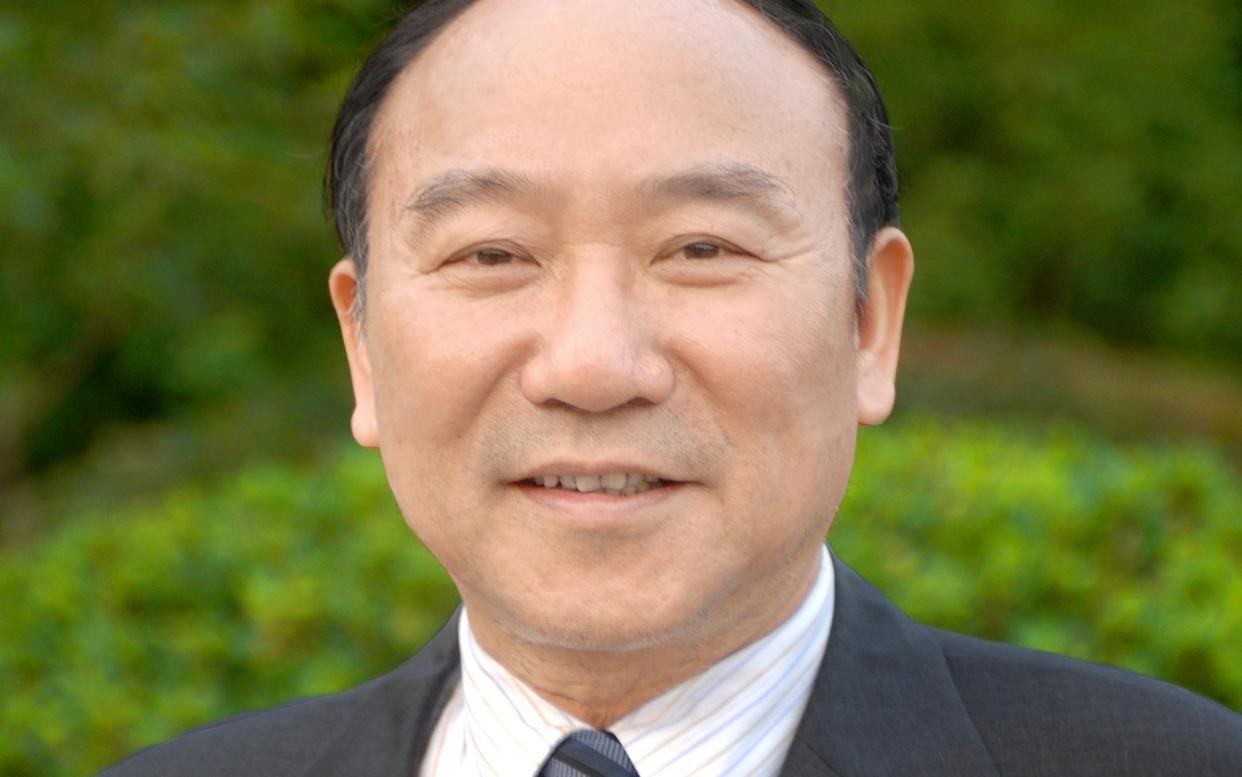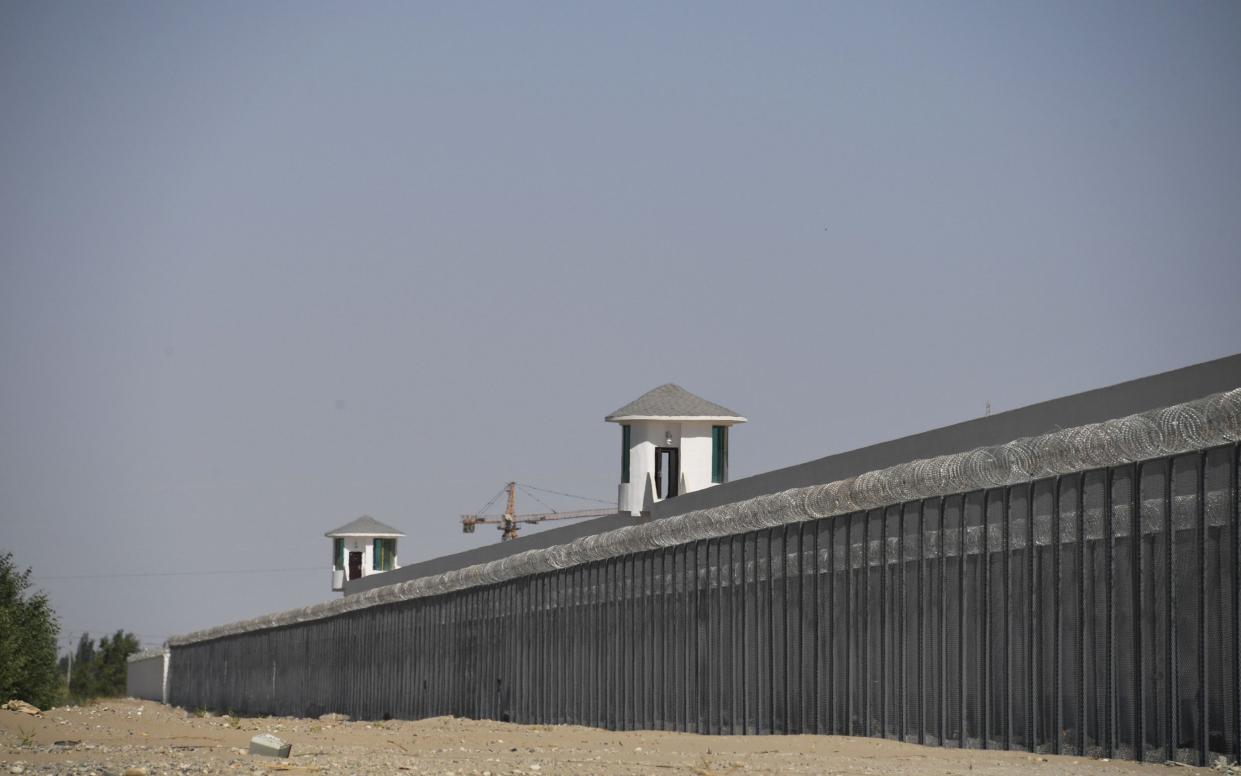Oxford University held training sessions attended by Chinese doctors accused of harvesting organs

Oxford University organised training programmes attended by Chinese transplant doctors facing allegations of illegally harvesting human organs, The Telegraph can reveal.
Academics designed dozens of courses over three years for the benefit of hundreds of medics, despite warnings that there is no safe way to collaborate with the Chinese transplant sector because the killing of political prisoners for their organs is so widespread.
The alleged role of one “honoured guest” at the most recent New Horizons programme, Prof Zheng Shusen, was said in a submission to a 2018 tribunal to need explanation over a “clear and convincing evidence pattern” of being “directly or indirectly complicit in the commission of crimes against humanity… against unknown individuals who were killed in the process of having their organs extracted”.
Data experts, and The Telegraph’s own investigation, have identified 15 other medics who took part in the sessions in 2023 regarding whom concerns have also been raised.
Oxford has been warned that its involvement in the programme could amount to inadvertent complicity in organ harvesting and was urged to disclose whether, and how much, it had been paid to take part.
Last year’s New Horizon also involved several senior NHS clinicians, according to the programme, including Prof Dale Gardiner, the clinical lead for NHS blood and transplant. No personal wrongdoing is alleged against him.
It comes amid increasing concern about the influence of the Chinese Communist Party on Britain’s top universities.
China has repeatedly used international medical collaborations as a propaganda tool to quell concerns about its transplantation ethics.
In contrast to nearly all other medically advanced countries, it allows almost no transparency around the sourcing of organs.
For decades, Beijing claimed that its unusually large supply of organs came from legally executed prisoners.

It said the practice ended in 2015 and that all organs have been supplied voluntarily since then.
However, experts argue that death-row prisoners could never have accounted for the scale of China’s organ transplantation programme.
They point instead to the documented widespread imprisonment and torture of Falun Gong spiritualists.
Falun Gong practitioners
In 2020, the independent China Tribunal, chaired by Sir Geoffrey Nice KC, formerly the lead prosecutor in the trial of Slobodan Milosevic, concluded that: “In the long-term practice in the PRC [People’s Republic of China] of forced organ harvesting it was indeed Falun Gong practitioners who were used as a source – probably the principal source – of organs for forced organ harvesting.”
The judgment added that there was no evidence of the practice having stopped.
Although non-statutory, the tribunal has since been endorsed by government ministers, who have written to the World Health Organisation (WHO) urging it to take note of its findings.
There is a global shortage of available organs and a lucrative black market for illegally obtained tissue.
A 2018 submission to the tribunal named Prof Zheng, a liver transplantation specialist at Zhejiang University, and stated that: “The evidence that Zheng has been able to harvest organs on demand – evidently from blood-typed captive individuals held on standby – coupled with transplants at his hospital being far in excess of available death-row prisoners in Hangzhou, requires an explanation.”
Prof Zheng has also been alleged to be a prominent member of the so-called “Anti-Cult Association”, which in practice is said to be a mechanism for supporting the persecution of Falun Gong practitioners.
In the preface to a book on the prevention of cults, he likened the movement to “viruses corroding the organism of humanity”, according to the submission.
Submissions banned
In 2017 the scientific journal Liver International was forced to retract a study submitted by Prof Zheng after he failed to provide sufficient evidence that the organs used in the study were sourced ethically.
It banned him from submitting any further work.
Despite this, the 2023 New Horizon programme, which was delivered via a series of online seminars to a conference suite in China, included Prof Zheng in its “honoured guest” category alongside the president of the European Society for Organ Transplantation (Esot), which endorsed the conference. No personal wrongdoing is alleged against the president.
In a statement, Oxford said its Centre for Evidence in Transplantation had provided webinars to raise standards in research practices, rather than direct transplant practice or surgery training.
The logo of the university’s Nuffield Department of Surgical Sciences sits above all the session posters, such as: “Advances in Heart Transplantation.”
Prof Wendy Rogers, chairman of the international advisory committee of the International Coalition to End Transplant Abuse in China, said: “It’s really shameful that Zheng Shusen participated. It shows a real lack of due diligence by Oxford and Esot.”
She added: “The New Horizons programme involves close collaboration with Chinese transplant clinicians and institutions.
“Due to China’s record of transplant-related human rights abuses, including forced organ harvesting, the programme exposes participating clinicians to potential complicity in those abuses.
Involvement in organ harvesting
Data research by the Victims of Communism Memorial Foundation highlighted five further attendees at the 2023 conference who have authored studies which, the foundation says, inadvertently revealed that the donors were alive just before their organs were removed.
The Telegraph has identified another 10 attendees who have been accused of involvement in organ harvesting by Falun Gong human rights campaigners.
In 2022, the law firm Global Rights Compliance (GRC) published a groundbreaking legal advisory document setting out how Western institutions risk criminal liability for inadvertent collaboration with China in the field of transplantation.
Wayne Jordash, managing partner at GRC, said: “Oxford University’s Centre for Evidence in Transplantation has a clear international legal responsibility that, at a minimum, obliges them to ask the difficult questions about the known risks in the field of organ transplantation in China.
“If those questions have not been asked, nor answered, satisfactorily by the relevant Chinese institutions, then Oxford University’s Centre for Evidence in Transplantation will have violated its international legal obligations.”
The Telegraph understands that Esot was made aware of this advisory in the context of New Horizons.
No follow-up New Horizon programme is believed to be scheduled for this year.
‘Condemns inhumane practice’
Oxford University did not disclose on what financial basis it had taken part in past programmes.
A spokesman said: “Oxford thoroughly condemns the inhumane practice of harvesting organs from executed prisoners and university academics have been in the forefront of urging international organisations to pressure China into ending the practice.
“The World Health Organization, the European Society for Organ Transplantation and other international bodies now permit support for lawful transplant education and research in China.”
Esot said it was “deeply committed to upholding the utmost ethical standards within the realm of organ donation and transplantation” and campaigned against unethical conduct.
Prof Zheng did not respond to a request for comment.
Additional reporting by Aidan Coyle


